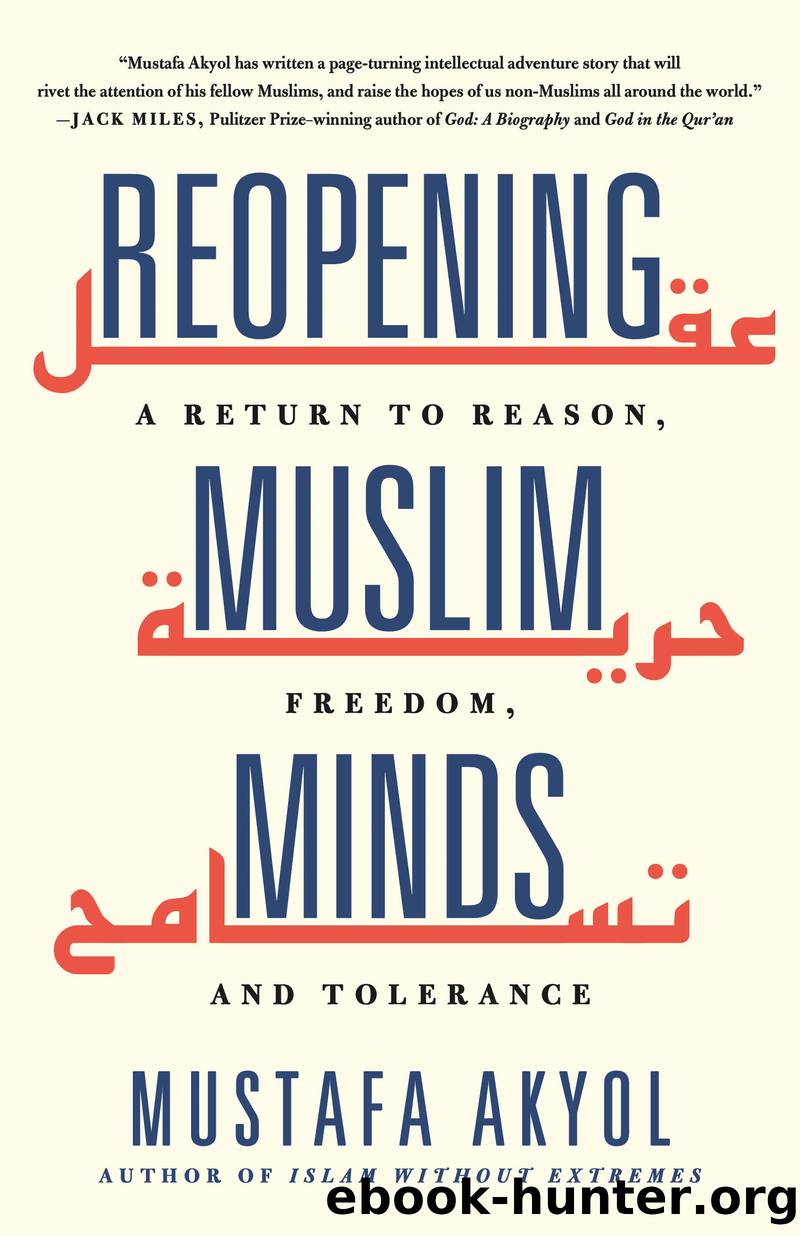Reopening Muslim Minds by Mustafa Akyol

Author:Mustafa Akyol
Language: eng
Format: epub
Publisher: St. Martin's Publishing Group
Such an abused woman came to Aisha asking for help. The latter told the story to the Prophet, who soon received the revelation: âDivorce is two times; after that, retain her on reasonable terms or release her with kindness.â28 So no man could divorce a wife âa hundred times,â just to âkeep her hanging.â29 A terrible practice was ended with a practical solution.
However, a new problem emerged over time: some couples were divorcing three times, but then they were genuinely desiring to reunite. Yet jurists, who upheld the letter of the law, never allowed them to do that. Instead, some tolerated a terrible solution: a short-term marriage with another man, which, according to most jurists, had to include consummation.30 It was called a marriage of tahlil, which made it halal, or âpermissible,â for the woman to go back to her original husband.
As one can imagine, this tradition has traumatized many Muslim couples over the centuries and led to an understandably critical literature in modern times.31 Yet it is still alive today, even in Europe. In 2017, BBC journalists exposed a number of online services in the United Kingdom that offer tahlil marriages to triple-divorced Muslim women. The latter had to pay thousands of pounds to âmarry, have sex with and then divorce a stranger, so they can get back with their first husbands.â32
Some jurists even exacerbated the problem by ruling that a âtriple divorceâ can take place in only one instanceâwhen a husband merely says, âI divorce you,â three times. In the recent decades, such âinstant triple divorcesâ have taken place even via email or texting. The practice is most common among the Muslims of India, where a nationwide ban on triple divorce was introduced in 2019. According to Muslim feminist Zakia Soman, the practice had persisted so long because many Muslim men believed it was âapproved by the Qurâan.â33 And that is because they totally lacked a contextual understanding of the Qurâan.
What we need to understand is that the immediate addressees of the Qurâan, the first Muslims, and us, Muslims of the twenty-first century, are two very different peoples. So we canât take all the divine commandments given to the first Muslims, in their very peculiar contexts, as literally applicable in our very different societies.
What we ultimately need is Fazlur Rahmanâs method of âdouble movementâ: first going back to the context of the Qurâan in order to understand the divine intentions behind laws, and then coming back to the modern context to formulate new laws to serve those intentions.34 With that perspective, the verses about forbidden months could teach us about chivalry, the verse about âasking permission at three times of dayâ could educate us about privacy, and the verses that regulate womenâs affairs could give us a vision to improve the female condition in any given society.
Download
This site does not store any files on its server. We only index and link to content provided by other sites. Please contact the content providers to delete copyright contents if any and email us, we'll remove relevant links or contents immediately.
| Africa | Americas |
| Arctic & Antarctica | Asia |
| Australia & Oceania | Europe |
| Middle East | Russia |
| United States | World |
| Ancient Civilizations | Military |
| Historical Study & Educational Resources |
The Third Pole by Mark Synnott(947)
Money for Nothing by Thomas Levenson(938)
The Economist (20210109) by calibre(920)
Christian Ethics by Wilkens Steve;(854)
Made in China by Anna Qu(847)
The Age of Louis XIV: The Story of Civilization by Will Durant(815)
Nonstate Warfare by Stephen Biddle(808)
Reopening Muslim Minds by Mustafa Akyol(796)
100 Posters That Changed The World by Salter Colin T.;(781)
Culture by Terry Eagleton(769)
The Shortest History of China by Linda Jaivin(758)
The Great Pyramid Void Enigma by Scott Creighton(755)
The Irish Buddhist by Alicia Turner(750)
Ideology by Eagleton Terry;(729)
Routledge Handbook of Contemporary India by Knut A. Jacobsen(727)
Sybille Bedford by Selina Hastings(682)
The Jews of Silence: A Personal Report on Soviet Jewry by Elie Wiesel(674)
Banaras: CITY OF LIGHT by Diana L. Eck(664)
Objects of Vision by Saab A. Joan;(661)
